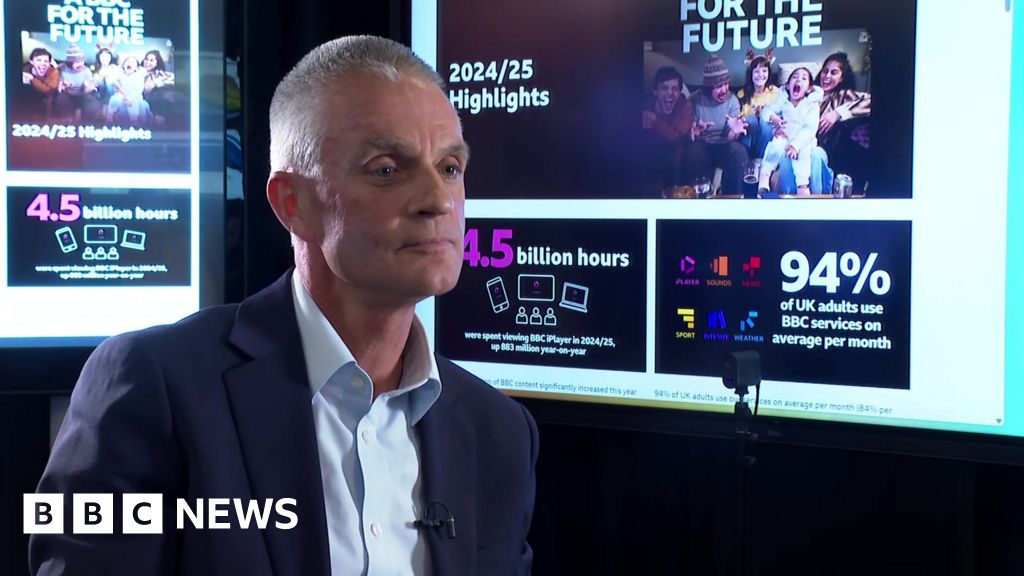The past weeks have put serious pressure on Tim Davie’s leadership. Today, I saw that up close.
For a usually very slick performer, he looked shaken. I wanted to know if he had considered resigning in the face of the recent controversies. He said he had not, but admitted it had been “a very, very tough time”.
Earlier Davie had launched the BBC’s annual report on Zoom, with journalists remotely asking questions in the Q&A box and no cameras allowed into the room for us to record and use his answers.
We were considering making clear to our audiences that – on such an important day for the BBC – nobody from the top of the corporation was being put in front of a camera to be interviewed on a range of issues, which were both of public interest and specifically relevant to licence fee payers.
Hours later, Mr Davie agreed to a face-to-face interview, which took place just after it was announced that the BBC and Banijay UK were not renewing John Torode’s contract as MasterChef presenter.
I usually interview the director general at times of crisis for the BBC. That’s the way these things work. To be fair to him, he always makes it clear that my job is to ask him questions without fear or favour. He knows part of his job is to be held to account.
But it’s been a very bumpy time, even by BBC standards. The Gaza documentary with a child narrator who later turned out to be the son of a Hamas official, another film about doctors in Gaza pulled before transmission, issues around the BBC livestreaming the punk duo Bob Vylan’s set at Glastonbury and the growing controversy surrounding MasterChef – all land at his door.
His leadership has been called into question, not least recently by the culture secretary. She called it a “series of catastrophic failures”.
It was obvious today it had been taking its toll. As director general, he’s insistent and wholehearted in his defence of the BBC and his role leading that. But as a man, you can sense the last weeks have been testing.
His interview style is to look straight at the person doing the interview. He usually measures his words carefully, although today, on a couple of points he was a little less fluent. Some of his answers – for example when he was talking about he and his team making “clear, strong decisions” in the face of challenges – sounded a bit rehearsed.
However, an unexpected by-product of him sounding less confident was that he also managed to sound, at times, more human. The last week has clearly left him frustrated and for once, he let that show. There was no hiding it when he said rather plainly: “I felt pressure”.
It brings to mind the recent public debate about Rachel Reeves and her tears in the Commons. Whatever we think of the decisions made by those in public service, what impact does it have on them as people when they are under such intense scrutiny. Should that even matter?
But they don’t call him Teflon Tim for nothing – and he survives, for the moment. Even if he is wounded.
The BBC today was signalling it is getting a grip on bad behaviour in the workplace. It’s something Samir Shah, chairman of the BBC, promised after the Huw Edwards scandal.
Now Gregg Wallace is gone, John Torode is gone. Three staff members have been asked to “step back” from their roles after Glastonbury. And we’ve now learnt that several people have been sacked in light of the BBC’s culture review.
The clear messaging: Teflon Tim and his team are getting tough.
